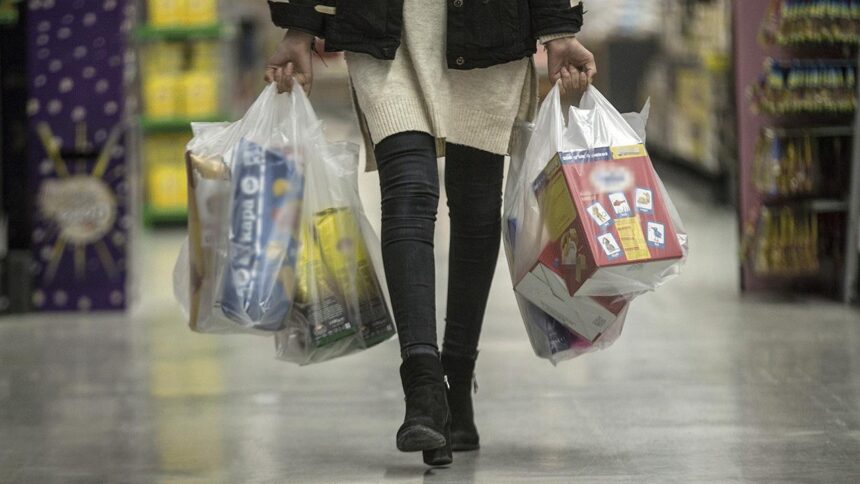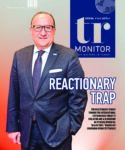Inflation can reach new peaks in April-May, according to economists. The Consumer Price Index (CPI) increased by 1.08% on monthly basis and by 16.19% year-over-year in March, according to the Turkish Statistical Institute (TurkStat). The inflation can break new records in April and May as well as projections in the second Inflation Report to be released on April 29 can be determinative in terms of future policies, according to economists.
Haluk Burumcekci, Serkan Gonencler, economist at Gedik Yatirim and Enver Erkan, economist of Tera Yatirim evaluated the recent data.
Price increase in non-food groups was more effective: Burumcekci
The price hike in non-food groups has been more effective in inflation increase compared to the previous year, while prices in the food group have increased below the previous year, according to economist Haluk Burumcekci.
“The higher increase in clothing prices compared to its seasonal trends has strengthened the rise in inflation. On the other hand, prices have modestly increased in groups sensitive to the foreign exchange (FX) rates such as furniture, household equipment, in-house textile, audio visual systems, personal care products and medical products,” Burumcekci said, stressing that price increase in housing, health, transportation, recreation and culture, hotel-restaurants and education groups has brought rise to inflation.
Burumcekci also stated that the annual inflation in March increased above the Central Bank’s year-end inflation projection of 9.4% and the uncertainty around the 5% inflation target.
“Alongside of the uncertainty and volatility in food prices, the outlook of crude oil and other commodity prices, FX rate movements and public price/tax adjustments will determine the direction of risks on inflation in the coming period,” he said. The adverse reflection of increase in oil and commodity prices as well as high course of global food prices continue to be seen in the short-term, according to the economist.
“Moreover, the currency basket has risen by around 10% since the end of February despite the recent slight decrease and annual change stands around at 27%. This upward impact will strengthen with the increase in import prices. Economic activity and domestic demand ended the first quarter without being much affected from monetary tightening. That’s why in case TRY doesn’t further depreciate, inflation is expected to reach the peak of 18% to 19% in April or May and to complete the year at 13-14% with gradual decrease,” Burumcekci added.
“The Central Bank’s projections in the Inflation Report to be released on April 29 will give more clues towards the monetary policy to be implemented in the following period,” Burumcekci said, predicting that the Central Bank won’t change the interest rate at the Monetary Policy Committee (PPK) meeting to be held on April 15.
Food inflation stood below the estimations: Gonencler
The monthly inflation increased in parallel with their 1.1% estimation and in this way, the annual CPI reached from 15.6% to 16.2% according to Serkan Gonencler, economist at Gedik Yatirim.
“Although the headline inflation increased in line with the expectations, the food inflation stood at 1.1%, which is below the estimation of nearly 2.5%, considering the details,” Gonencler said.
“The main core inflation items such as services inflation and other basic goods inflation (mostly fast-moving consumer goods) increased above the expectations. The recent depreciation in TRY paved the way for a monthly inflation of 4.13% by directly reflecting on Domestic Producer Price Index (D-PPI). D-PPI annually rose from 27.1% to 31.2%. We estimate that the adverse impacts of ongoing rise in D-PPI and recent depreciation in TRY will be further observed on the CPI. Accordingly, the CPI, which we expected previously to peak roughly 17.0% in April, can now see 18%,” Gonencler added.
Inflation continued to rally with the impact of oil and FX: Erkan
Increase in inflation continues for the sixth consecutive month, while the inflation rose in line with the market expectations, according to Enver Erkan, Economist of Tera Yatirim. Erkan also stated that pricing tendencies driven by increase in oil prices and weakness in TRY were main effective factors in ongoing inflation rise. Erkan also added that all main expenditure groups increased in line with observations.
“The ‘C’ indicator in which variable items such as food, energy and gold are excluded, rose from 16.2% in February to 16.9% in March. The 13% loss in value of TRY and the normalization pricing after the pandemic in the services sector raised the upward risks in the inflation peak. This indicates higher inflation rates in April and May than expected before.”
Health increased by 3.70%, education rose by 2.77% and restaurants and hotels increased by 2.60%, which outstand as items demonstrating higher increase than the headline inflation. Recreation and culture rose by 2.01%, miscellaneous goods and service increased by 1.98%, clothing and footwear rose by 1.72% and food and non-alcoholic beverages increased by 1.13%. The annual inflation in food fell from 18.4% to 17.4% in March, however it’s well above the Central Bank’s year-end food inflation target of 11.5%.
“Brent crude prices which increased compared to the previous year is a reflection of increase in annual energy inflation from 8.8% to 12.4%. Increase in energy costs is important since it can show a spillover effect on the overall inflation,” said Erkan regarding the sub-items of the inflation.
Three developments to be monitored for the inflation:
>> The survey of expectations
The Central Bank’s expectation survey for April will be released on April 9. The year-end CPI expectation rose from 11.23% to 11.54% in March, according to the recent survey. The revisions following the recent developments will give clues about the CPI.
>> The PPK Interest Decision
The PPK meeting will be held on April 15 for the first time under the presidency of Governor Sahap Kavcioglu. The policy rate is expected to remain unchanged at 19%. However, possible changes during the meeting are important in terms of direction of messages to be given to the markets.
>> The Central Bank’s inflation report
The Central Bank will release the second inflation report of the year on April 29. The Bank’s year-end inflation is estimated at 9.4% for 2021. The possible changes in the existing projections are important. However, Governor Kavcioglu’s presentation at the meeting and particularly the question and answer part also has an importance.










